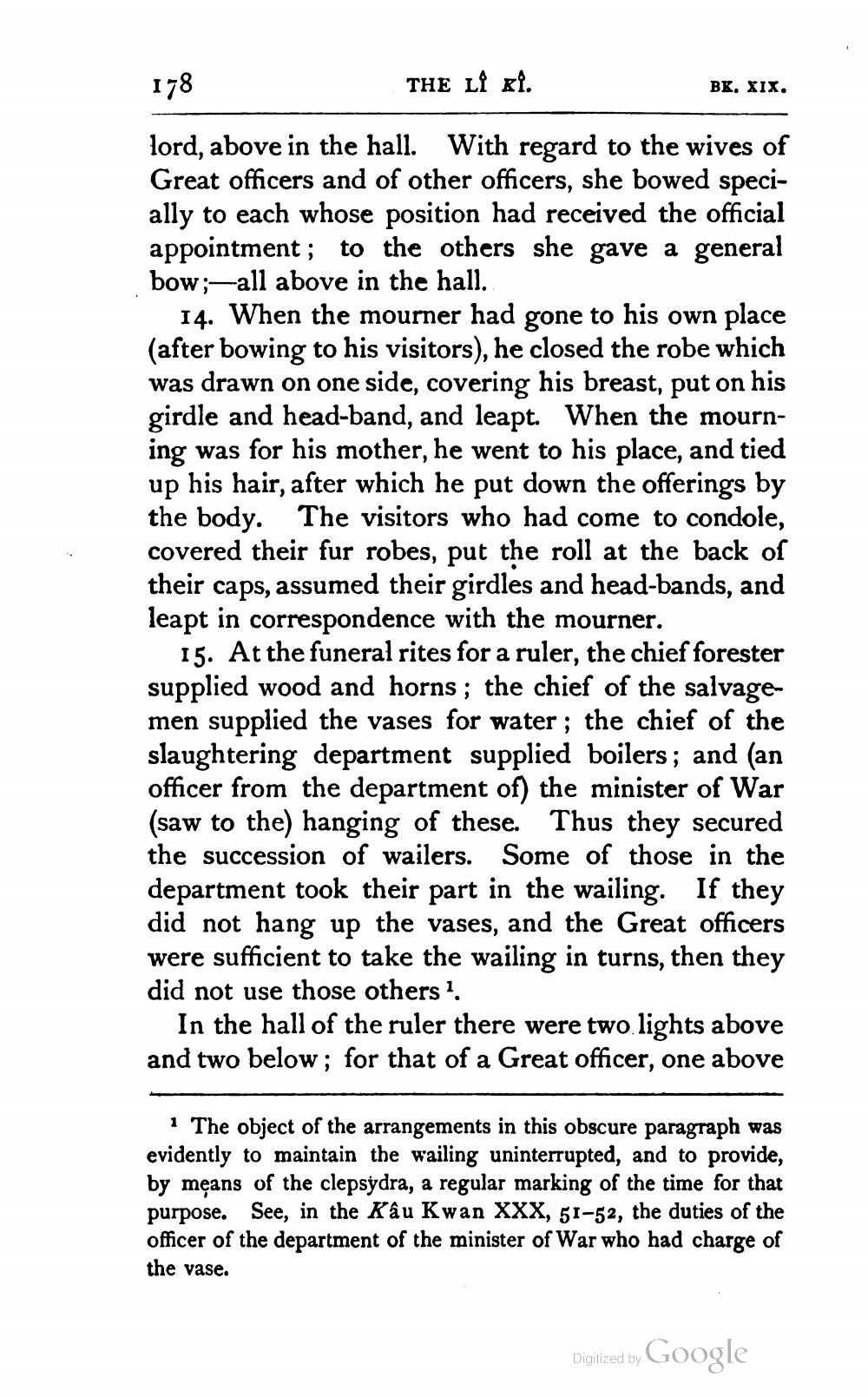________________
178
THE LĨ KỲ.
BK, XIX.
lord, above in the hall. With regard to the wives of Great officers and of other officers, she bowed specially to each whose position had received the official appointment; to the others she gave a general bow;-all above in the hall..
14. When the mourner had gone to his own place (after bowing to his visitors), he closed the robe which was drawn on one side, covering his breast, put on his girdle and head-band, and leapt. When the mourning was for his mother, he went to his place, and tied up his hair, after which he put down the offerings by the body. The visitors who had come to condole, covered their fur robes, put the roll at the back of their caps, assumed their girdles and head-bands, and leapt in correspondence with the mourner.
15. At the funeral rites for a ruler, the chief forester supplied wood and horns; the chief of the salvagemen supplied the vases for water; the chief of the slaughtering department supplied boilers; and (an officer from the department of the minister of War (saw to the) hanging of these. Thus they secured the succession of wailers. Some of those in the department took their part in the wailing. If they did not hang up the vases, and the Great officers were sufficient to take the wailing in turns, then they did not use those others ?.
In the hall of the ruler there were two lights above and two below; for that of a Great officer, one above
1 The object of the arrangements in this obscure paragraph was evidently to maintain the wailing uninterrupted, and to provide, by means of the clepsydra, a regular marking of the time for that purpose. See, in the Kâu Kwan XXX, 51-52, the duties of the officer of the department of the minister of War who had charge of the vase.
Digitized by Google




